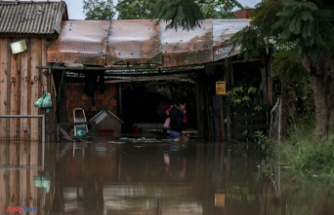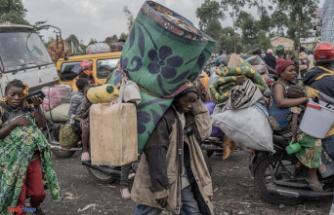Schwerin (dpa / mv) - Mecklenburg-Western Pomerania is not going along with the relaxation of the isolation requirement for people infected with corona. “We still think it is important that infected people have as little contact as possible with non-infected people,” said Health Minister Stefanie Drese (SPD) on Friday in Schwerin. In their view, the isolation rules should not be relaxed before the expected wave of corona infections in winter.
Baden-Württemberg, Bavaria, Hesse and Schleswig-Holstein had previously agreed to lift the general obligation to isolate for people who tested positive in a timely manner. "We are heralding a new phase in dealing with the pandemic," said Baden-Württemberg's Health Minister Manne Lucha (Greens). "It's time to give people more personal responsibility again."
The CDU parliamentary group in Schwerin would also have liked the state government in the north-east to do the same. "The four federal states are going in the right direction. It is unfortunate that Mecklenburg-Western Pomerania is not going along this path," said parliamentary group leader Franz-Robert Liskow. Drese acts discouraged and without political claims.
The Minister of Health, on the other hand, sees the approach as a break with the previous goal of a scientifically sound, coordinated approach by the federal states in the pandemic. She regrets this, said Drese. Nevertheless, the topic of isolation will be discussed in the country's weekly Corona Expert Council.
In their approach, the four countries refer to experiences from neighboring countries such as Austria, where there have been protective measures "replacing isolation" since summer 2022. Other reasons given are declining numbers of infections, effective vaccination and basic immunity within the population of more than 90 percent. From the point of view of the federal states, this step is also justified by the fact that there are usually no severe courses of the disease and no effective antiviral drugs.












